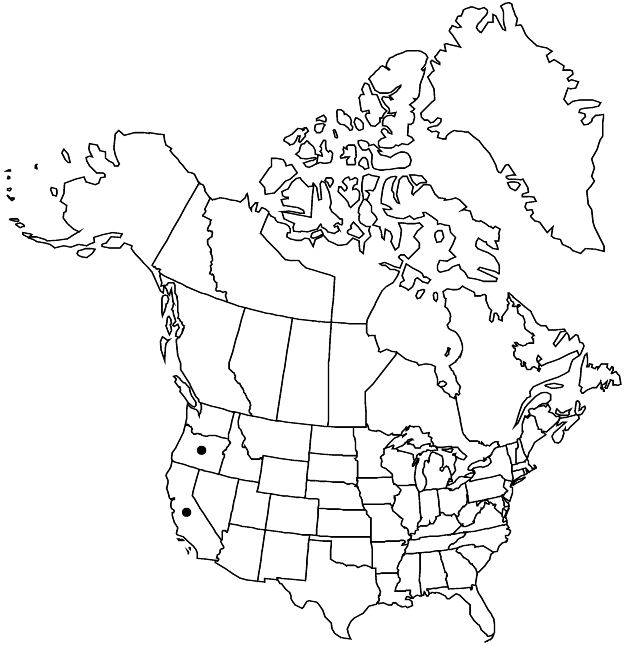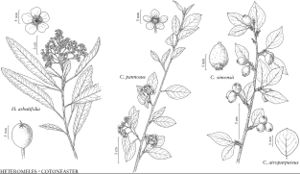Cotoneaster pannosus
Pl. Delavay., 223. 1890.
Shrubs, 1–5 m. Stems erect, wide-spreading, arching, pendulous, slender; branches spiraled, purple-black, tomentose-villous. Leaves persistent; petiole 4–7 mm, tomentose; blade elliptic, sometimes broadly elliptic, 15–35(–39) x 10–19(–26) mm, mid-coriaceous, base cuneate, margins flat, veins 4–6, usually superficial, sometimes slightly sunken, apex acute or obtuse, abaxial surfaces whitish tomentose, adaxial green to blue-green, dull, not glaucous, usually flat between lateral veins, initially sparsely pilose. Inflorescences on fertile shoots 20–45 mm, usually with 4 leaves, (3–)5–15(–25)-flowered, compact. Pedicels 1–5 mm, tomentose. Flowers [7–]8.5–10 mm diam.; buds white; hypanthium funnelform or cupulate, silky-tomentose; sepals: margins villous, borders white, narrow, membranous, apex red, cuspidate, sometimes acute or obtuse, surfaces tomentose; petals spreading, white, sometimes with hair tuft; stamens 16–20, filaments white, anthers dark pink-purple to purple; styles (1 or)2. Pomes red, globose, depressed-globose, subglobose, or broadly obovoid, 5–9.2 × 5.5–9.5 mm, shiny, not glaucous, villous; sepals suberect, tomentose; navel open; style remnants at apex. Pyrenes (1 or)2. 2n = 68 (Germany).
Phenology: Flowering May–Aug; fruiting Oct–May.
Habitat: Thickets, meadows, sea cliffs, canyons, coastal chaparral, springs, edges, waste ground, pastures, disturbed forests
Elevation: 0–800 m
Distribution

Calif., Oreg., Asia (China), introduced also in Europe, Africa (South Africa), Pacific Islands (Hawaii, New Zealand), Australia.
Discussion
Selected References
None.
